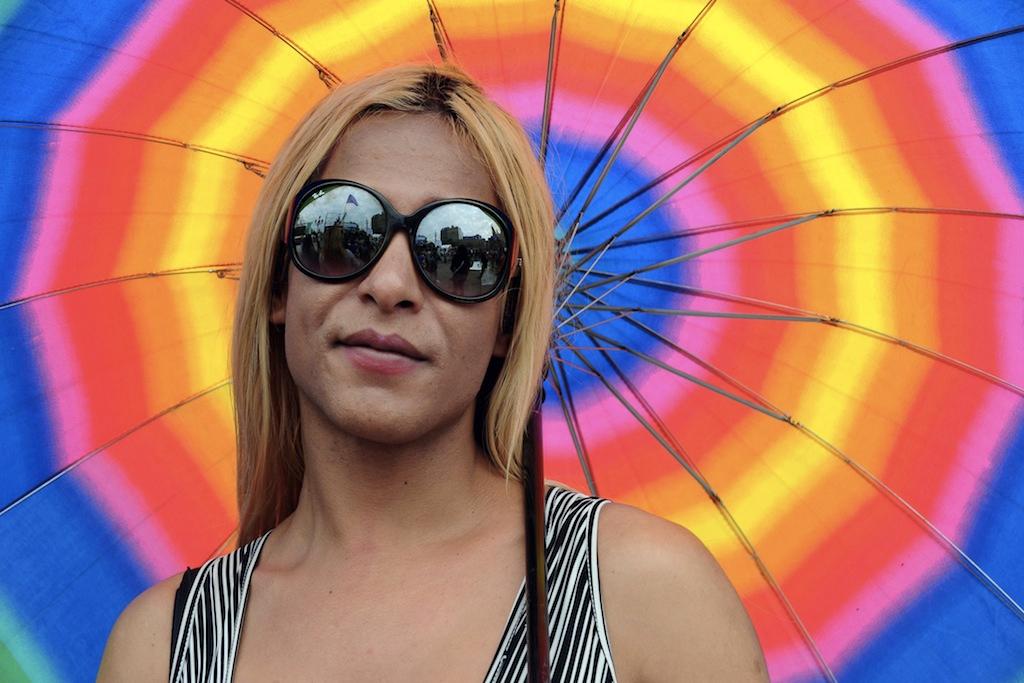Argentina’s Gender Identification Law takes effect
A transsexual waits outside the Congress while the Senate debates the bill of gender identity in Buenos Aires, on May 9, 2012. The law took effect Monday.
Transgendered Argentinians lined up at the Civil Registry in Buenos Aires Monday to request new identification cards that would reflect their gender based on self-identification, not biology.
A sweeping, unanimous decision last month to allow transgendered citizens to apply for new identification into effect yesterday and is the first law of its kind in the world.
While the US and other countries have had considerably stricter laws that require significant hoop-jumping (such as psychological evaluations and hormone therapy) to legally change genders, Argentina has made gender as easy as changing an address. Gender reassignment surgery, should a person choose to undergo it, will also be covered by health care providers, both public and private.
After the law was passed May 10 by a majority vote, LGBT advocates rejoiced. "This law is going to enable many of us to have light, to come out of the darkness, to appear," openly gay Argentinian legislator Osvaldo Lopez said. "There are many people in our country who also deserve the power to exist."
Previously, anyone who wanted to legally change their gender on identification and the national registry had to petition a judge and go through a complicated process. Now, the Gender Identity Law allows any adult citizen to change any part of their identification documents, including their image and given name.
Maria Mara Brodos, a transgendered person who changed her documents yesterday said to AP, "It's important to have the freedom to decide by myself and not have anyone deciding it instead of me."
Children also get consideration under this new law, and can request a legal change in gender with the permission of their legal guardian.
For more on Argentina and LGBT rights around the world, check out our Special Report entitled "The Rainbow Struggle."
![]()
We want to hear your feedback so we can keep improving our website, theworld.org. Please fill out this quick survey and let us know your thoughts (your answers will be anonymous). Thanks for your time!
